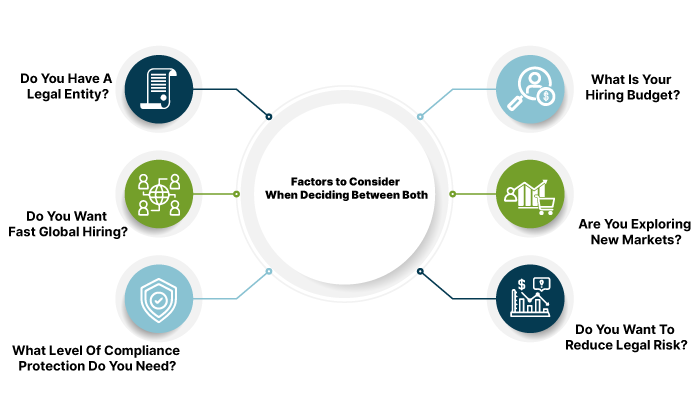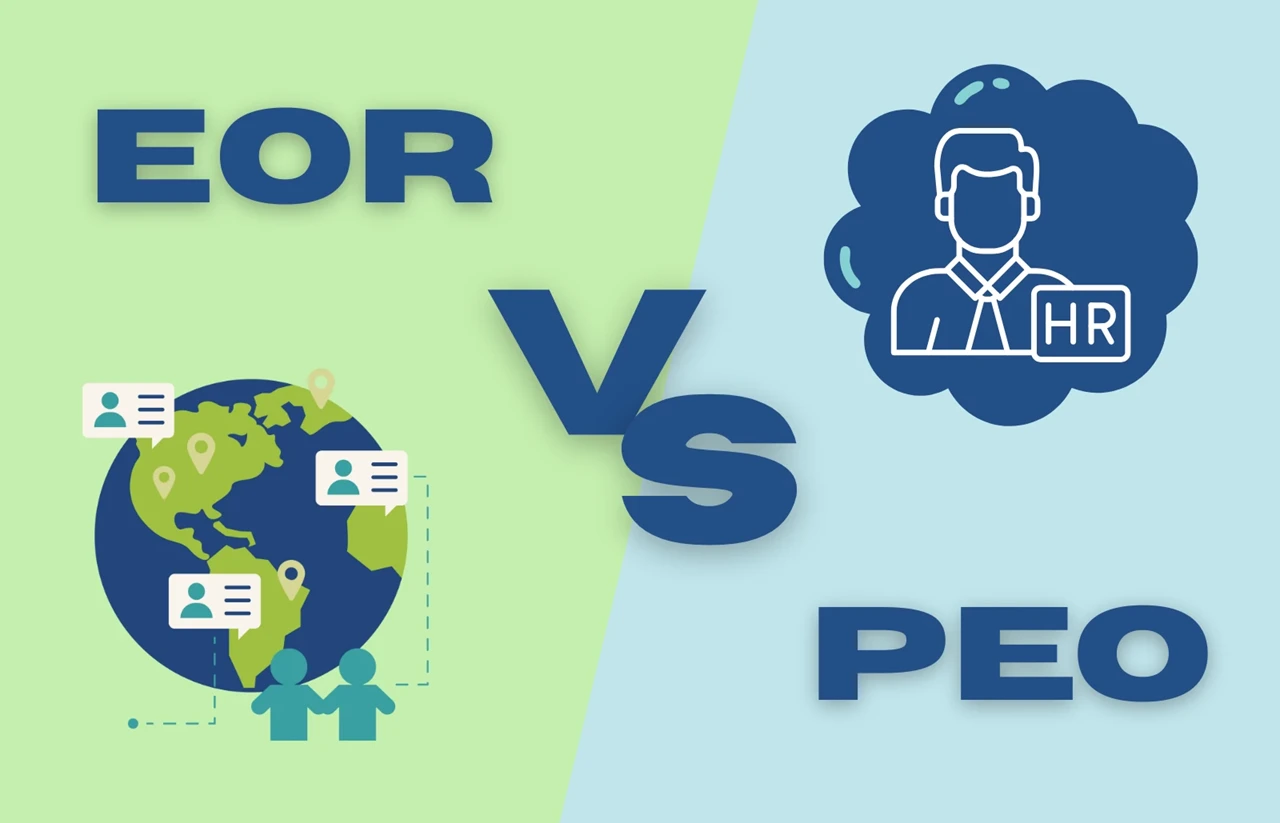Expanding globally brings huge opportunities and complex HR challenges. Remire helps businesses hire talent anywhere quickly, compliantly, and without setting up local entities.
Understanding PEO vs EOR is essential for choosing the right model for smooth global growth.
To help you choose the right model, here’s a detailed, well-organized comparison.
What Is an EOR?
An Employer of Record is a global hiring solution that legally employs your international workforce on your behalf.
With Remire EOR, you can:
- You hire talent in any country without opening an entity
- We manage compliance, payroll, contracts, taxes, and benefits
- You maintain full control over your team’s work, culture, and performance
Remire offers EOR services that are ideal for fast global hiring, testing new markets, and legally employing remote teams.
What Is a PEO?
A Professional Employer Organization is a co-employment model.
This means:
- Your company must have a legal entity in the country
- You share employer responsibilities with the PEO
- The PEO handles HR admin, payroll, and benefits, but you remain the legal employer
PEO limitations:
- Cannot hire in countries where you have no entity
- Compliance liability is shared
- Slower hiring process
- Additional legal, tax, and administrative obligations remain yours
Similarities Between PEO and EOR
- Payroll Management
- Benefits administration
- HR compliance support
- Employee onboarding
- Time and attendance management
The key PEO vs EOR differences lie in compliance, hiring flexibility, and global capability.
What Are the Differences Between PEO vs EOR?
| Feature | EOR | PEO |
|---|---|---|
| Legal Employer | EOR is the legal employer | You remain the legal employer |
| Entity Required? | No | Yes |
| Compliance Risk | EOR handles it | Shared |
| Hiring Speed | Fast, global | Slower, entity-dependent |
| Payroll | Global payroll included | Local payroll only |
| Contracts | EOR provides compliant contracts | You issue contracts |
| Best For | Global hiring & expansion | Local teams with existing entity |
Cost Comparison Between PEO and EOR
| Cost Factor | EOR | PEO |
|---|---|---|
| Pricing Model | Flat monthly fee or % of salary | % of total payroll |
| Entity Requirement | Not required (saves setup costs) | Required (entity setup + maintenance) |
| Average Cost Range | Typically $200–$700 per employee/month | 2%–12% of payroll |
| Hidden Costs | Minimal, transparent | Possible extra fees (benefits, admin, compliance) |
| Global Hiring Cost | Lower — no entity needed | Higher entity, legal, and compliance costs apply |
| Ideal For | Fast global hiring at predictable cost | Local HR support where the entity exists |
This comparison shows why many companies choose an EOR when deciding between PEO vs EOR for global growth.
What Services Do EOR and PEO Offer?
Both help reduce HR burden, but their responsibilities differ widely.
What Services Does a PEO Offer?
Professional Employer Organization supports businesses that already have a legal entity.
PEO Services include:
- Payroll processing and tax-related filings
- Employee benefits administration, including insurance and retirement plans
- HR compliance guidance to ensure policies follow local laws
- New hire onboarding support, paperwork, and documentation
- Recruitment assistance, such as advertising job roles or screening applicants
What Services Does an EOR Offer?
Employer of Record provides global-first employment by becoming the legal employer.
EOR Services include:
- Hiring employees on your behalf using its own local legal entities
- Managing payroll according to country-specific laws
- Handling taxes, social security, and statutory deductions
- Managing mandatory benefits such as health insurance, pension contributions, and paid leave.
- Visa, relocation, and work permit support, when allowed by the country
- Acting as the official point of contact with government bodies and authorities
Factors to Consider When Deciding Between Both

Ask yourself:
- Do you have a legal entity?
- Do you want fast global hiring?
- What level of compliance protection do you need?
- What is your hiring budget?
- Are you exploring new markets?
- Do you want to reduce legal risk?
If you answered yes to global hiring or compliance protection → choose EOR.
If you operate only in one country → PEO may work.
Why Choose Remire?
Remire makes global hiring simple, compliant, and stress-free.
With Remire, You Get:
- Seamless EOR services in multiple countries
- Fast onboarding with fully compliant contracts
- Payroll, taxes, and benefits handled automatically
- Zero legal risk, Remire acts as the official employer
- Transparent pricing with no hidden fees
Whether you need global expansion or HR support, we ensure your team is hired correctly, paid on time, and protected by local laws.
FAQs – PEO vs EOR
What does PEO stand for?
PEO stands for Professional Employer Organization, a service provider that partners with businesses to manage HR functions through a co-employment model.
What does EOR mean in hiring?
EOR stands for Employer of Record. In hiring, it refers to a third-party company that becomes the legal employer of your workers. They handle payroll, compliance, contracts, and benefits, which is especially useful for hiring in other countries.
What is the difference between EOR and BPO?
- An EOR manages legal employment and compliance for your workforce, often across borders.
- A BPO (Business Process Outsourcing) provider handles outsourced business tasks, like customer support, accounting, or IT.
Choosing the Right Model for Your Global Growth
A PEO is ideal for local teams with shared HR responsibilities, while an EOR like Remire is best for global hiring without setting up entities.
If you’re comparing PEO vs EOR to support rapid international expansion, EOR delivers faster hiring, lower risk, and full compliance.
Ready to Expand Globally?
Contact Remire and see how an EOR can simplify international hiring for your business.

